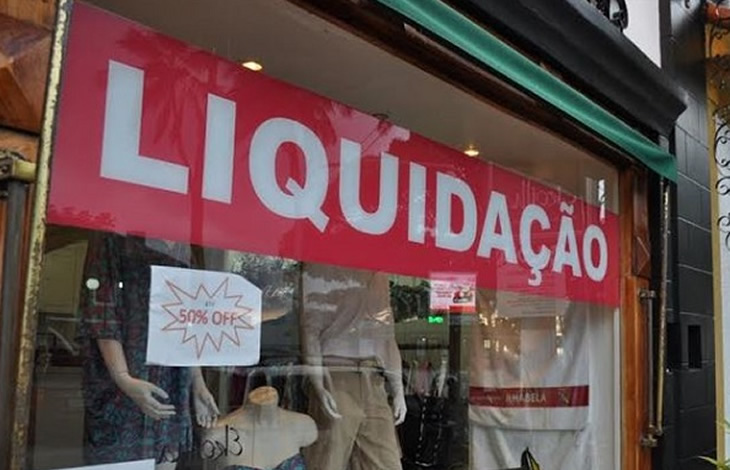Mozambique: Dugongo to invest $35 million in Ancuabe cement plant
Electronic banking collapse causing huge losses

File photo: O País
Mozambican private businesses are losing about five million meticais (82,000 US dollars) a day because of the collapse of most electronic banking systems in the country, according to the Confederation of Mozambican Business Associations (CTA).Most bank debit cards, automatic teller machines (ATMs) and POS (Point of Sale) card readers have not been working since Friday morning, when the provider of the computer software used, the Portuguese company Bizfirst, cut Mozambique off.
Mozambican consumers and companies are suffering from a dispute between Bizfirst and SIMO (Mozambican Interbank Company). The SIMO network covers most banks in the country, and hence most debit cards and ATMs. When SIMO goes down, it takes most of the country’s electronic transactions with it.
The Bank of Mozambique, which owns 51 per cent of SIMO, had hoped to incorporate all the commercial banks into SIMO. Fortunately, the largest commercial bank, the Millennium-BIM (International Bank of Mozambique), was just too big to be swallowed up by SIMO. BIM was thus immune to the crisis and so its cards and ATMs continue to work.
SIMO claimed on Sunday that it has no debts to Bizfirst, but Bizfirst promptly retorted, in a detailed statement, that SIMO had never paid the required licence fee for using the Bizfirst software.
Despite requests from AIM, the Bank of Mozambique has not replied to the Bizfirst statement, and has provided no written information about the contractual situation between SIMO and Bizfirst.
At a Monday press conference, the CTA’s spokesperson on financial policy, Bernardo Cumaio, demanded the immediate re-establishment of commercial transactions. He attacked the Bank of Mozambique for operating both as the majority shareholder in SIMO, and as the regulator of the entire banking system – functions he regarded as incompatible.
He claimed that, since the crisis began, the daily takings in the main shopping malls have fallen by 90 per cent, and in hotels and restaurants by 70 per cent. (However, when the independent television station STV did its own survey of Maputo shops, it was told that the fall in sales was around 50 per cent).
Cumaio said the crisis has already cost the banking system around 600 million meticais. He based this estimate on SIMO’s own figures – namely that, prior to the collapse, there were 465,000 transactions a day domestically, and 14,000 transactions abroad, that used the SIMO network.
On Monday, long queues developed at the banks, as clients withdrew cash to meet their immediate needs. They could be in the queue for two hours or more to withdraw sums that are normally taken from ATMs in two minutes.
Cumaio also said the CTA has been in contact with the Mozambican Association of Banks (AMB) which guaranteed that the crisis would be over in 48 hours – though the rationale for such optimism is not yet clear. Cumaio was not convinced by this promise.
“What worries us is the lack of a guarantee about when the system will be operational again”, he said. “Faced with the seriousness of the situation, we find it strange that the regulator and other relevant bodies in the national financial system are silent”.
Cumaio pointed out that the current situation involved huge, if unquantifiable, transaction costs because of the additional time spent in the banks, and the breakdown in trust between clients and service providers.
One of the main banks, Standard Bank, has issued a notice to its clients that they can still withdraw money from its ATMs by using credit cards. But most Mozambicans do not possess credit cards, and banks charge exorbitant fees for using them.
Investigative journalist Marcelo Mosse has claimed that purchasing the software licence from Bizfirst would cost SIMO five million dollars for three years. A new contract would give SIMO breathing space to investigate alternatives.
Since the SIMO shareholders are all banks (51 per cent for the central bank and 49 per cent for the commercial banks) raising five million dollars should not be difficult. Mosse argues that the banks could be asked to raise the money in proportion to their holding in SIMO. That would mean the Bank of Mozambique itself contributing 2.55 million dollars – a sum which can easily be found, given that the central bank recently spent 300 million dollars on gigantic new offices in downtown Maputo.
Mosse’s figures could, of course, be wrong. But neither SIMO nor the Bank of Mozambique has said how much Bizfirst is demanding. The public has been kept in the dark about these fundamental details.
The costs to Mozambique will be considerably higher, if Bizfirst carries out its promise to sue SIMO. In its Sunday statement, Bizfirst said it has already put the matter in the hands of its lawyers who will seek compensation from SIMO for the unauthorised use of the software, and the violation of BizFirst’s intellectual property rights.
Following the public accusation by SIMO chairperson Gertrudes Tovela that Bizfirst is “blackmailing” SIMO, the Portuguese company announced that it would also sue SIMO for defamation, and demand further compensation for the damage done to its reputation.
Mosse points out that Tovela gave no evidence for the alleged blackmail. Her claim that the sovereignty of the Mozambican state is under attack “doesn’t work if SIMO doesn’t present any proof”.
Breaking off relations with Bizfirst without guaranteeing any alternative, merely because “we will not give in to blackmail”, merely makes matters worse, Mosse argues. SIMO was demonstrating “a false pride which only benefits half a dozen prominent people in the central bank, and penalises thousands of Mozambicans”.












Leave a Reply
Be the First to Comment!
You must be logged in to post a comment.
You must be logged in to post a comment.